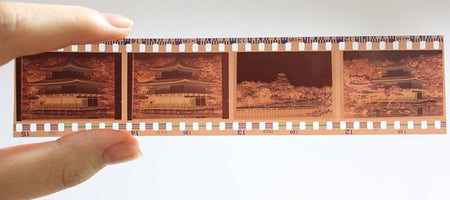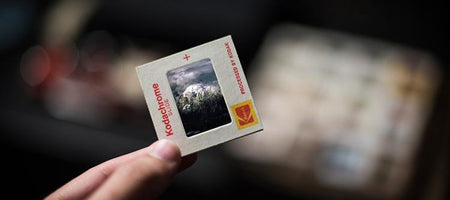There’s something so special about gathering your family around the television, popping in an old VHS from years past, and watching the past come back to life through video.
Whether you’re watching a pool party from twenty years ago, someone’s wedding video, or a video from a normal Thursday, nostalgia has a way of bringing back the emotions, details, and connections that make those moments feel priceless.
There’s some bad news we have to tell you, though: your tapes are degrading.
That’s right—they’re degrading with each passing day. Just like all things, tapes don’t last forever, and one day, they’ll no longer work, and those memories saved on them will be gone.
The good news is that there are a few ways to lengthen the lifespan of your videotapes and to preserve your memories, but first, let’s explore why tapes degrade in the first place.
Reasons Why VHS Tapes Go Bad
Aging VHS Tapes
VHS tapes have magnetic particles inside their binding, and this is where the image and audio are stored in the tape. These magnetic particles have a lifespan and eventually lose their charge, causing audio and visual distortions in tapes.
If you’ve ever watched a really old VHS tape, you may have noticed some fuzzy sound and visual quality. It was likely due to the magnetic particles within the tape losing their charge.
Overusing Your VHS Tapes
VHS tapes are not made to be played over and over until the end of time. Each VHS tape is made with a lubricant to help the magnetic tape run smoothly inside a VCR. Once this lubricant runs out, the tape is susceptible to stripping and tearing when played. This means that your most beloved tapes, the ones you play back the most, are the most likely to degrade first.
Rewinding and fast-forwarding tapes can, over time, cause them to become completely detached from the reels or stretch the backing and substrate of the tapes, which causes issues with sound and image quality. That’s not what we want to happen to our precious memories!
Damaging Your Tapes
JostlingVHS tapes around by dropping them, stepping on them, etc., can cause the mechanisms within the cassettes to become damaged or broken. If this occurs, the tapes become unplayable and can possibly damage your old VCR if inserted. You definitely don’t want a broken videotape and a broken VCR.
These types of damages that occur from overuse are unavoidable if you watch your tapes semi-regularly. Over time, your tapes lose their heartiness and can become easily damaged.
Storing Your VHS Tapes Improperly
Heat and humidity can cause your home movies to degrade, so store them in a cool, dry place away from direct sunlight, heaters, or damp areas like basements. Dust can also be an issue, so keeping tapes in their original cases helps protect them from buildup. Avoid stacking them flat, as the weight can warp the tape over time—storing them upright, like books, is best.
How to Preserve Your VHS Tapes
So with all of this said, how long do VHS tapes last? On average, the lifespan of VHS tapes is 10 to 30 years if cared for properly. This is why it’s so important to do everything you can to store your VHS tapes properly and avoid overplaying them.
The only way to improve the lifespan of your VHS tapes is to store them in the best possible conditions. According to the U.S. National Archives and Records Administration, the following are the proper storage conditions to improve the longevity of your videotapes:
- Temperature: 55-70 degrees Fahrenheit
- Humidity: 30-55% relative humidity
- Location: A closet or unused room on the main level of the home
- Placement: Off the floor and stored vertically in a box (never stacked!)
- Protection: Away from other magnetized items
If you can follow these storage instructions, your VHS tapes will have a much better chance of standing the test of time.
No matter how perfectly you may store your videotapes, though, one day they will degrade completely. Over time, magnetic degradation (also called "tape decay" or "sticky shed syndrome") can cause playback issues, such as distorted audio and video. The only way to prevent losing the special old video content stored on those tapes forever is to get your VHS tapes digitized!
Avoid Tape Decay by Digitizing Your Tapes
If you want to preserve your home videos long-term, digitizing them is the best option.
Digitization is a process that takes your analog media and transfers it to digital files that can be accessed from most devices. Making your original tapes digital is the only way to ensure that those memories will be kept in your family forever. Even with the best storage, VHS tapes don’t last forever—over time, they degrade, leading to faded images, muffled audio, or even total loss of footage.
With Southtree, we make digitization a piece of cake by offering free shipping and handling, step-by-step tracking, and 24-hour customer service. What are you waiting for? Get your tapes digitized today with Southtree.













